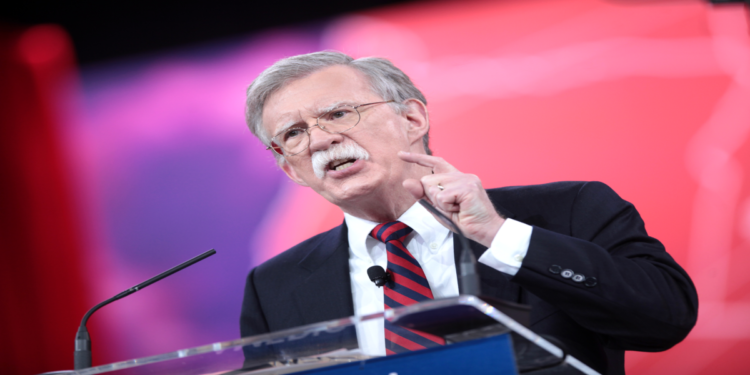By Susan Kendi and Brian Obara
Several countries and human rights organizations have piped up in support of the International Criminal Court (ICC) days after US President Donald Trump’s national-security adviser John Bolton gave the court a tongue-lashing in a speech on Monday.
Bolton, in a fusillade of verbal salvos that has received much attention from the media and triggered consternation and confusion in human rights circles, warned ICC judges and prosecutors that they would face individual criminal charges, arrests and economic sanctions if they charged any American who served in Afghanistan with war crimes. Bolton also told ICC officials to tread carefully on Israel and other allies.
“If the court comes after us, Israel or other US allies, we will not sit quietly,” he said.
The US is a signatory to the Rome Statute but has not ratified it since 2000 when then president Bill Clinton signed it. When President George W. Bush succeeded Clinton, Bolton played a lead role in the administration’s effort to undermine the ICC.
Perilous times
Human rights organizations and States parties to the Rome Statute led by Assembly of States Parties (ASP) President O-Gon Kwon have leapt to the defence of the world’s only permanent war crimes court. O-Gon, in a statement released by the ICC’s Public Affairs Unit, pointedly rebutted Bolton’s claims without mentioning him by name:
“The International Criminal Court is an independent and impartial judicial institution crucial for ensuring accountability for the gravest crimes under international law. The Court is non-political and acts strictly within the legal framework of the Rome Statute, its founding treaty,” said Kwon in a brief statement.
The Principality of Liechtenstein, which has consistently championed the ICC’s work, urged other supporters of the Court to stick by it in these perilous times:
“20 years after the historic adoption of the #RomeStatute of the #ICC, to which 123 countries from all regions of the world are party, the rules-based international order is under increasing attack, making political support for the independence of the ICC more important than ever!” tweeted the Official Account of the Permanent Mission of Liechtenstein to the UN.
The statement of support from Germany’s Foreign Office stuck to the theme of the ICC being under attack:
“Since 2002, the International Criminal Court @IntlCrimCourt has been enforcing international law in cases of the most serious crimes. We are committed to the work of the ICC — in particular when it comes under fire.”
Human rights organizations were less cautious in their response to Bolton’s tirade.
Elizabeth Evenson, an Associate Director at Human Rights Watch’s International Justice Program said the “most outlandish” part of Bolton’s “bluster” was the “threat to prosecute in US courts ICC judges and prosecutors who bring legal action against Americans.”
Evenson said Bolton was mocking the plight of victims:
“ICC officials and member countries are unlikely to be cowed by Bolton’s disdain for the court. But his speech was a stark affront to victims of atrocity crimes seeking justice. The ICC has its shortcomings, but it serves as a powerful signal to perpetrators and victims alike that justice for the worst crimes is possible,” she wrote.
Adotei Akwei, Deputy Director of Advocacy and Government Relations at Amnesty International USA took a similar line:
“The United States’ attack on the International Criminal Court is an attack on millions of victims and survivors who have experienced the most serious crimes under international law and undermines decades of groundbreaking work by the international community to advance justice.”
Amnesty International’s Centre for International Justice meanwhile called on more states parties to rebuke Bolton:
“John Bolton’s threats to the ICC’s judges and prosecutors was an attack on the international rule of law. All states parties to the ICC, especially those whose nationals are affected, must strongly condemn those remarks and publicly support the Court’s staff.”
Is the damage already done?
In a sign that Bolton’s words could provide a convenient shield to forces hostile to the ICC and erode the Court’s authority, the Leader of Majority in Kenya’s National Assembly tweeted on Tuesday that Bolton’s verbal assault on the ICC “vindicated” the Kenyan government for its own anti-ICC stance:
“It’s now confirmed that ICC “is an illegitimate court, a political instrument used by the Europeans”. We are vindicated,” he wrote.







